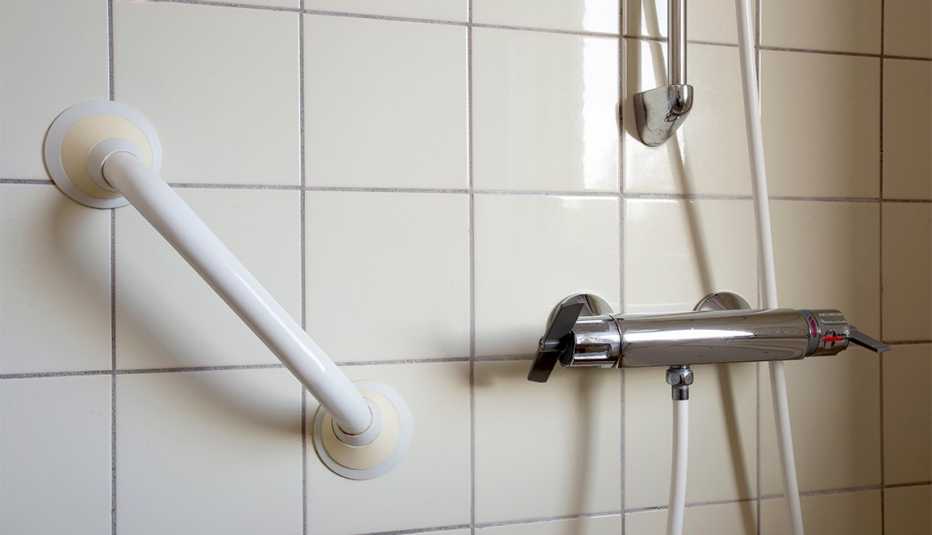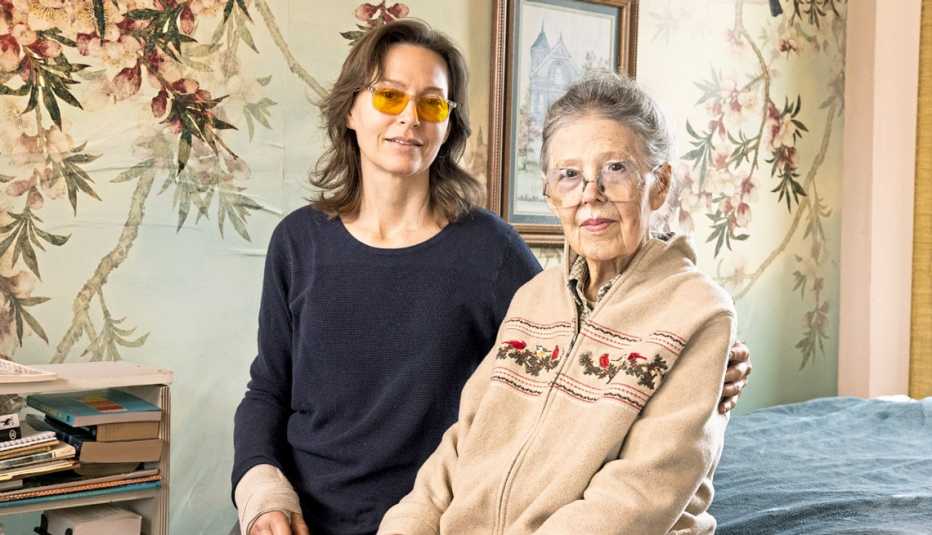Staying Fit
Caregiving is hard, but don’t let your home make it harder.


AARP Membership— $12 for your first year when you sign up for Automatic Renewal
Get instant access to members-only products and hundreds of discounts, a free second membership, and a subscription to AARP the Magazine.
Bathrooms, dim lighting and even furniture pose risks when taking care of a loved one. But new tools and techniques can improve the safety of a home, making caregiving a bit easier. And it doesn’t need to be complicated in order to be helpful.
“Household items and a home environment, once innocuous, need to be reconsidered through a new lens,” says Monica Moreno, senior director of care and support at the Chicago-based Alzheimer’s Association, which offers a home safety checklist to help caregivers keep those living with dementia safe and independent as long as possible. AARP’s free Homefit Guide features smart ways to make a home comfortable and a great fit for people of all ages.
Here are nine tools designed to help caregivers ease the burden of daily challenges.
1. Sit-to-stand toilet
Research shows that a quarter of falls take place in the bathroom, so assistive toilet seats with adjustable handlebars and seat heights — for safe and stable toilet transfers — are helpful when dealing with weakness and instability issues.
“It’s common for individuals to easily sit down to go to the bathroom, but then they can’t get off the toilet,” says registered nurse Eboni I. Green, cofounder and CEO of Caregiver Support Services, based in Omaha, Nebraska. “Or if they have the ability to get off, they might grab on to an unsecure towel rack and can easily fall.”
2. Adjustable beds
“These may be costly, but they’re a real investment in helping to adjust comfort levels with the push of a button,” says Green. These beds can help create an upright position for eating and are a good tool for preventing bedsores. They also allow for quicker repositioning, and safer and faster transfers in and out of bed. “These beds are revolutionary,” Green says.
3. Walk-in shower with handrails


Making it easy to shower will make it easier for caregivers to get someone with dementia or other challenges to bathe.








































































